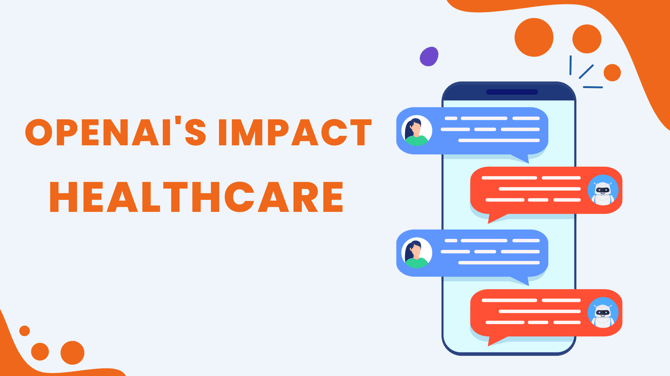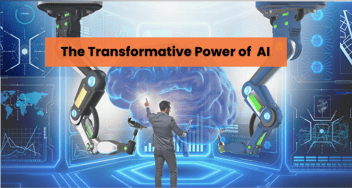Transforming Diagnostics: Open AI's Impact on Healthcare
Discover how OpenAI is reshaping healthcare with groundbreaking advancements in diagnostics and treatment.

The healthcare industry is undergoing a profound transformation driven by advances in artificial intelligence (AI) and machine learning. Among the pioneers in this field is OpenAI, whose cutting-edge models are catalyzing innovation across various healthcare domains, from disease diagnosis to drug discovery.
In this article, we will explore OpenAI's impact on healthcare and how these remarkable technologies are being technically created and implemented to improve patient outcomes.
Machine Learning Models in Healthcare:
One of the most striking applications of OpenAI's models in healthcare is their ability to assist in disease diagnosis. These models can analyze a patient's medical history, symptoms, and diagnostic images to suggest potential conditions, helping healthcare professionals make more informed decisions. These models can analyze a patient's medical history, symptoms, and diagnostic images to suggest potential conditions, helping healthcare professionals with masters in laboratory science make more informed decisions.
- Image Recognition: OpenAI's models can analyze medical images such as X-rays, MRIs, and CT scans. They can identify anomalies and provide differential diagnoses, significantly reducing the time required for image interpretation.
- Natural Language Processing: By processing vast amounts of medical literature and patient records, OpenAI's models can assist in identifying rare diseases or uncovering relevant research papers that might have been overlooked by human physicians.
- Telemedicine Support: OpenAI-powered chatbots can be integrated into telemedicine platforms, enabling patients to receive preliminary diagnoses and treatment recommendations remotely.
Personalized Treatment Plans:
One-size-fits-all treatment strategies are becoming a thing of the past. OpenAI's models are helping to usher in an era of personalized medicine, where treatment plans are tailored to individual patients.
- Predictive Analytics: Machine learning models can analyze patient data to predict disease progression, allowing healthcare providers to intervene proactively.
- Drug Interaction and Adverse Event Prediction: OpenAI's models can assess a patient's medication list and predict potential drug interactions or adverse events, helping to avoid complications.
- Genetic Analysis: By analyzing a patient's genetic data, machine learning can help identify genetic markers associated with diseases and inform treatment decisions.
Drug Discovery:
The process of drug discovery is time-consuming and costly. OpenAI's models are expediting drug discovery by accelerating the identification of potential drug candidates and their mechanisms of action.
- Drug Candidate Screening: Machine learning models can analyze chemical structures and predict which molecules are likely to have therapeutic effects, saving researchers time in the early stages of drug development.
- Virtual Drug Testing: OpenAI's models can simulate how drugs interact with biological targets, allowing for the identification of potential side effects and optimizing drug efficacy.
Technical Implementation:
Implementing OpenAI's models in healthcare requires a thoughtful approach, considering privacy, data security, and regulatory compliance.
- Data Collection: Healthcare organizations must collect and curate high-quality, anonymized patient data to train and fine-tune machine learning models.
- Model Training: Data scientists and machine learning experts work to train and fine-tune OpenAI's models, customizing them to specific healthcare tasks.
- Integration: Once trained, the models are integrated into healthcare systems, including electronic health records (EHRs), diagnostic tools, and telemedicine platforms.
- Regulatory Compliance: Compliance with healthcare regulations, such as HIPAA in the United States, is paramount to ensure patient data privacy and security.
Challenges and Future Prospects:
While the integration of OpenAI's models in healthcare holds tremendous promise, there are challenges to overcome. Ensuring the ethical use of AI, addressing biases in datasets, and navigating regulatory hurdles are among the key concerns.
However, with proper safeguards and ongoing collaboration between AI developers, healthcare providers, and regulatory bodies, the future of AI in healthcare looks bright.
In conclusion:
OpenAI's models are driving a revolution in healthcare, improving disease diagnosis, enabling personalized treatment plans, and expediting drug discovery.
The technical implementation of these models requires careful consideration of data, model training, integration, and regulatory compliance. As AI continues to evolve, it will play an increasingly central role in delivering better healthcare outcomes for patients worldwide.













